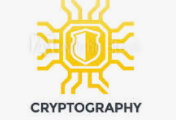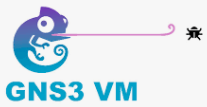Lead the way in the fast-paced world of networking technology
As organisations race to adapt, skilled networking professionals are in higher demand than ever.
The Master of Networking (MNet) combines hands-on learning with real-world projects across emerging fields. You’ll develop technical skills, work with industry-standard tools, and build experience through case studies and industry-based projects.
You’ll graduate with the technical expertise and industry-ready experience to work in networking, cybersecurity, cloud systems, smart technologies, or IT project management-depending on the major you choose, or whether you opt for a broader study path without a major.
DURATION
2 Years (4 Trimesters)Full-Time or Equivalent Part-Time
INTAKES
March,July,
November
LOCATION
Sydney, MelbourneAQF LEVEL
Level 9| Duration 2 Years (4 Trimesters) Full-Time or Equivalent Part-Time | |
| Intakes March, July, November | |
| Location Sydney, Melbourne | |
| AQF Level Level 9 |
Choose a major that fits your career goals
As a student in the MIT Master of Networking, you have the flexibility to specialise in an area that reflects your interests and career goals. Each major is designed to help you build practical, job-ready skills that open doors in fast-growing areas of tech and give you a competitive edge in the job market
Explore our Master of Networking majors

Cloud Networks
Develop your expertise in network automation, system management, and cloud technologies.
Learn More

Cybersecurity
Protect data and systems in a world where security is everything. Learn cyber analytics, digital forensics, and ethical hacking.
Learn More

Smart Sensors and Automation
Gain skills in sensor networks, smart environments, and automated systems.
Learn More

Cryptocurrency
Dive into blockchain, crypto finance and the legal frameworks behind digital currencies.
Learn More

Project Management
Lead complex projects with confidence. Build your skills in planning, execution, and stakeholder management.
Learn More
Prefer a course without a major?
The Master of Networking also gives you the option to complete the course without a major. It’s a great choice if you want to build a broad set of networking and IT skills or explore multiple areas without committing to a specific major. No matter which direction you take, you’ll graduate with hands-on experience, technical knowledge, and the confidence to step into the tech industry.
CAREER PATHS
A career in networking could see you working in the following roles
- Network Manager
- Network Analyst
- Network Design Engineer
- Mobile Applications Developer
- Help Desk Manager
- Chief Information Security Officer
- Systems Engineer
- Network Analyst
- Forensic Computer Analyst
- Information Security Analyst
- Penetration Tester
- Security Architect
- IT Security Engineer
- Security Systems Administrator
- IT Security Consultant
You could find work at major organisations including the Australian Defence Force, IBM, CISCO or within smaller businesses or startups. Salaries can be more than $100k per annum.
PROFESSIONAL RECOGNITION AND ACCREDITATION
The Master of Networking is accredited by the Australian Computer Society in the Professional Level, as well as
| TEQSA Higher Education Standards Framework |
Australian Quality Framework (AQF) Level 9 |
OUR APPROACH GIVES YOU THE SKILL AND KNOWLEDGE TO SUCCEED IN YOUR IT CAREER.
The Master of Networking course structure was created to ensure students build up their knowledge in a logical order so they can progress quickly. Our approach allows students to tackle innovative projects and gain valuable industry experience.
Each unit consists of 20 credit points. A full-time study load is 60 credit points per trimester.
MNet comprises ten core units and two electives that may make up a specialisation, such as cybersecurity, cloud networks, project management, cryptocurrency, or smart sensors and automation (see below).
Final year students complete:
MN690 - Research Methods and Project Management; and
MN692 - Capstone Project
Read more about our Industry-Based Projects and Internships
Example Course Structure :
COURSE UNITS
Master of Networking - Course UnitsCommon Core Units
- MN404 - Fundamentals of Operating Systems and Programming
- MN405 - Data and Information Management
- MN511 - Enterprise and Cloud Networks
- MN521 - Network Automation
- MN522 - Information Security
- MDA513 - ICT Practices
- MN603 - Wireless Networks and Security
- MN625 - Software Managed Networks
- MN690 - Research Methods & Project Management
- MN692 - Capstone Project
LEARNING OUTCOMES
Graduates of Master of Networking have these learning outcomes:
Possess a body of knowledge that demonstrates an understanding of state-of-the-art developments in the area of Networking:
- by understanding recent developments in the discipline and/or area.
- with knowledge of research principles and methods in a field of work and/or learning.
- skills to investigate, analyse and synthesise complex information.
- skills to generate and evaluate complex ideas and concepts.
- communication skills to justify theoretical propositions, methodologies, conclusions.
- technical skills to design, evaluate, implement, analyse and theorise about developments.
- mastery of theoretical knowledge, critical reflection on their and practice.
- technical research sills to interpret theoretical propositions, methodologies and conclusions.
- communication skills to argue about design, evaluation and analysis of developments.
Demonstrate significant research, analysis and evaluation skills in the networking discipline by:
- Planning and executing a substantial research-based project, capstone experience/piece of scholarship.
- Creativity and innovation to new situations.
Skills
- Gain qualifications that set you up for a rewarding career in IT
- Get real-world experience working on commercial projects
- Learn from industry experts who share their practical experience
- Learn how to apply your learning
- Work to creatively solve problems faced by businesses and governments
ENTRY REQUIREMENTS
To quality for entry you need to have
- Successful completion of Australian Bachelor degree or equivalent.
- For the cognate stream: An Australian bachelor degree or equivalent in Information Technology or a related discipline such as computer science, software engineering, computer engineering or networking.
- For the non-cognate stream: An Australian bachelor degree or equivalent in any other discipline.
- Institute Entry Requirement
- MIT's Admissions Transparency
- MIT Admissions Policy and Procedures
English Language Requirements
| IELTS Academic |
Overall score 6.0 (no band less than 5.5) |
|---|---|
| TOFEL ibt |
Overall score 60-78 with minimum scores: Reading 12, Listening 11, Speaking 17, Writing 20 |
| PTE Academic |
Overall score 52 with (no score less than 46) |
| Cambridge CAE |
CAE score of 169 (no band less than 162) |
ENTRY REQUIREMENTS
To quality for entry you need to have
- Successful completion of Australian Bachelor degree or equivalent.
- For the cognate stream: An Australian bachelor degree or equivalent in Information Technology or a related discipline such as computer science, software engineering, computer engineering or networking.
- For the non-cognate stream: An Australian bachelor degree or equivalent in any other discipline.
- Institute Entry Requirement
- MIT's Admissions Transparency
- MIT Admissions Policy and Procedures
English Language Requirements
IELTS Academic
Overall score 6.0
(no band less than 5.5)
TOFEL ibt
Overall score 60-78 with minimum scores: Reading 12, Listening 11, Speaking 17, Writing 20
PTE Academic
Overall score 52 with no score less than 46
Cambridge CAE
CAE score of 169 (no band less than 162)
Credit Transfer
Students can gain credit for learning already achieved. Applicants are assessed on a case-by-case basis. Learn more about credit transfer. Read more about the process.
Applications for credit transfer must be made before or during orientation and enrollment week.
WE USE THE SAME TOOLS AS INDUSTRY PROFESSIONALS










Use industry standard ICT tools, including






Our state-of-the-art labs allow you to learn new disciplines





FEE INFORMATION
Study now and pay later with FEE-HELP.Students studying at MIT may be eligible for FEE-HELP. FEE-HELP is a loan scheme that assists eligible fee-paying students to pay their tuition fees. An eligible person may borrow up to the FEE-HELP limit to pay tuition fees over their lifetime.
Read more about FEE-HELP or visit Study Assist.
Tuition feesFor fee information visit the tuition fee page.
Financial assistance
Youth and student allowances
For details on Youth Allowance, Austudy and ABSTUDY, visit Human Services.
FEE INFORMATION
Tuition FeesFor the latest fee information visit the Tuition Fee Page.
If you have any questions regarding fees or payment options, please contact the Admissions Team at enquiries@mit.edu.au
FREQUENTLY ASKED QUESTIONS
What is networking?Networking is a term used to describe a computer network. This is a group of computers that use common communication rules over digital connections to share resources and to protect them from the outside world.
What can I do with a Master in Networking?A master of networking can lead to employment at a more senior level working alongside systems architects as a structural, cloud or networking engineer.
PREPARING YOUR APPLICATION
Before applying, make sure you:
- Meet the course entry requirements for the course you want to apply for.
- Have all your details ready—for example, your educational history, personal details, academic transcripts and award certificates.
What to include with your application?
- Evidence of completion of your previous studies that is award certificates or transcript with completion confirmed.
- Proof of identity, for example, your passport or birth certificate or citizenship.
- Evidence of English language skills (if you completed studies from a non-English speaking country).
- Proof of your permanent residency or citizenship if you were born overseas.
Certifying your academic documents
You should provide certified copies of your academic and other essential documents at the time of application.
Uploading your documents
You must upload all requested documents at the time of the application.
Learn more about the whole of the institution set here.
Contact us
Phone our friendly student recruitment team on 1800 648 669.
enquiries@mit.edu.au
Hear from our students
Hear how MIT helped Vaishnavi develop practical skills
Vaishnavi reflects on applying what she learned in class to real-world projects— and how that experience gave her the confidence to step into the tech industry.
Why Study at MIT?
Hands-on learning
When you study with us, you stretch your mind and get practical, hands-on experience.
Real-world experience
Learn the tech, programs and skills you’ll use to solve industry problems.
Individual attention
We have more face-to-face teaching time. So, we make sure you’re being supported and challenged.
Industry Projects
Businesses are increasingly shifting from specialist IT teams to integrated, multi skilled teams. Employers are demanding graduates who are innovative thinkers, who can work collaboratively and can solve problems to create cost effective business solutions.
That’s why we focus on meaningful group learning and building industry connections for all students in our industry projects.
These units are designed to provide you with real-world experience, working for an industry client.
- Develop vital soft skills, like leadership, communication and negotiation, when you communicate and collaborate with a team of your peers
- Conduct high level research, analysis and development
- Tackle complex real-world problems with technical and creative skills
Previous industry projects included in a Master of Networking:
| Traffic control
Developing an automatic detection system using Internet of Things devices. |
Retail
Designing a MAC address detection system to prevent petrol theft. |
| Digital library
Building an Artificial Intelligence analytical framework using big data. |
Online retail store
Creating a secure cloud-based multi-authentication biometric password framework. |
| Lifestyle improvement
Design and development of an animal flap with facial recognition techniques. |
Imaging and data processing
Comparative analysis of locally-sensitive hashing algorithm and similarity digest on images. |
OUR STAFF ARE LEADING INDUSTRY EXPERTS
Our school attracts some of the best minds in the fields of Engineering and Networking. Our staff are industry experts. They drive research in the field and they bring energy to the classroom.

Dr Wanod Kumar
Senior Lecturer in the School of IT and Engineering (SITE)
Dr Wanod Kumar received his B.Eng. degree from Mehran University of Engineering and Technology in Jamshoro, Pakistan, and his MSc. and Ph.D. degrees in Wireless Communications from the University of Leeds, UK He is currently working as a Senior Lecturer in the School of IT and Engineering (SITE) at the MIT Sydney Campus. He has also served as a Senior Cyber Security Analyst with the Australian government. In the past, he worked as a senior academic at Mehran University in Pakistan. His research interests include cyber security and its applications, energy-efficient wireless networks, and IoT and its applications.
OUR STAFF ARE LEADING INDUSTRY EXPERTS
Our school attracts some of the best minds in the fields of Engineering and Networking. Our staff are industry experts. They drive research in the field and they bring energy to the classroom.
Join a Supportive Network
When you study a Master of Networking you’ll make friends and industry connections that last a lifetime. Our welcoming student support team will help you start your career on the right foot and stay in touch as your career progresses. Our alumni network is active and encouraging.
WE CARE ABOUT YOUR FUTURE
At MIT you’re more than a number. Our teachers know students by name. And our teaching methods support and challenge you to reach your potential.
Our care goes beyond the classroom. We ensure students have the support and skills they need to succeed in life and study.
We understand that choosing a course can be daunting at times. Our friendly student support service is there to answer your questions.
Let’s get started. Call us today.
At MIT you’ll experience great teaching in a supportive environment. And you’ll graduate with the skills you need to succeed.
Call our friendly student services team today to discuss your learning journey on +61 3 8600 6700.



